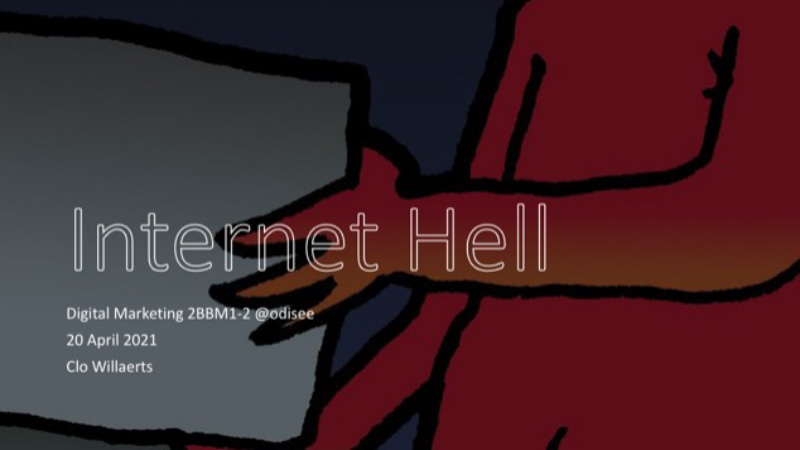The latter is the title of the TEDx talk from Clo Willaerts, my latest guest on the Hyperthinking Podcast. She discusses technology singularities and suggests that sometimes the best way to deal with exponentially changing times is to sit back and let things happen, like Isaac Newton dealing with a pandemic outbreak (of the Black Plague, in his case) in 1666.
“Go home, sit under a tree and let things happen” – Clo Willaerts
Our focus for the podcast was on internet hell, something which is covered in her recent digital marketing courses at Odisee University of Applied Sciences, in which she runs through the gamut of problems of our modern digital age, from catfishing to antivaxxers, or Chinese credit scores to deepfakes. At first glance, this and the TEDx talk seem somewhat contradictory—one is emphasising the serene, while the other is a deep dive into some of the most blood boiling parts of today’s society. In a way, they make perfect sense, however—the more overwhelming or frustrating change is, the more important good coping mechanisms are.

I’ve known Clo for 15 years, and it was delightful to get into some of these issues in the podcast. She’s a Belgian marketing professional that has been looking at these questions since near the beginning (“when the internet was still in black and white”, as she says), and has been writing a popular technology blog since 2004. She also has a brand new book about to come out on video marketing, which I’m excited to read.
We both teach at Odisee and share a passion for digital marketing and understanding online behaviour, trends, influence, and all the other connected facets. These questions are more important than ever—we’re living in an age of misinformation, and what used to be just online trolls or isolated groups is spilling over into the real world. Just take a look at the person who brought a weapon into a US pizza parlour because he thought the basement held a child sex trafficking ring, or the 5G cell towers set on fire in the UK because of COVID-19 conspiracies.
And, of course, antivaxx issues are at a fever pitch, given COVID-19. I got deep into this discussion last podcast, with Dr. Todd Wolynn, and Clo has focused on the problem as well, and how to tackle it.
Young people are more likely to be sceptical about vaccines, data shows.
— Clo Willaerts (@bnox) January 22, 2021
Health workers have been taking to video-sharing app TikTok and other social media platforms to dispel misinformation about COVID-19 and the response to the pandemic. https://t.co/avMeE36OQ9
What is the answer? Clo describes herself as a technology optimist and believes in the power of people to be able to overcome disinformation (versus, say, just relying on corporations to curate digital spaces themselves). There are also systematic-yet-personal approaches, like individuals adhering to a Twitter code of conduct that isn’t imposed by the company (or a government).
“We as individuals are responsible for what’s going on, and it’s up to us to do something about it. Each one of us.” – Clo Willaerts
We must understand the tactics of populists and those who profit off disinformation. After all, influencing people with a story, a narrative, is not intrinsically a bad thing. It is often used for bad ends, like with antivaxxers, Qanon, or other forms of disinformation, but we can also create truthful, emotional, positive storytelling, and use it for good. We extensively covered one tactic in the last podcast with Dr. Todd: creating evidence-based research discussions and spreading these sources online. Clo’s work, and call to communicators, is perfect to expand and reinforce initiatives like these.
“Storytelling is so powerful, and if it works for these people, it can work for us as well.” – Clo Willaerts
The issues sometimes seem like a series of balancing acts, with absolutely massive consequences. How can individuals harness the power to solve these problems? What role do communicators and/or legislators play? And how do you navigate all this while maintaining sanity and a positive outlook? There is a constant desire in human nature for people to “believe and belong” as Clo said, and it is our job as communicators to aid in the direction of this through facilitating accurate and informed sources of information on the internet.
It’s tricky stuff, but I appreciated one of Clo’s final takes: that we don’t need a Big Brother, but many little brothers—aka all of us, acting responsibly and trying to do our best and leave the planet in a better place than we found it. It’s a wonderful thought to consider, perhaps while sitting under an apple tree.











